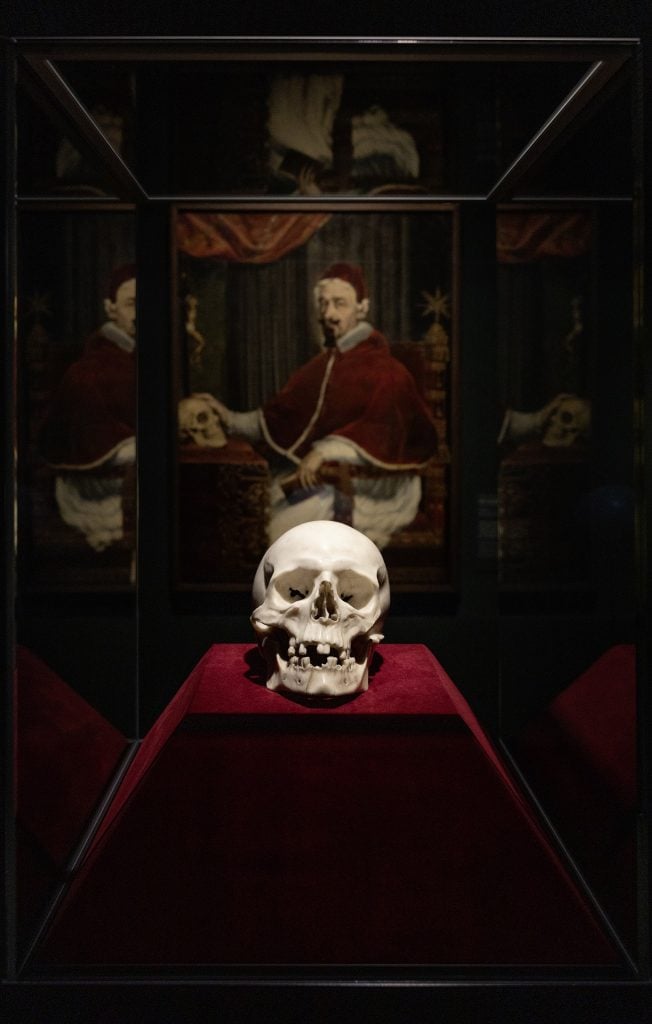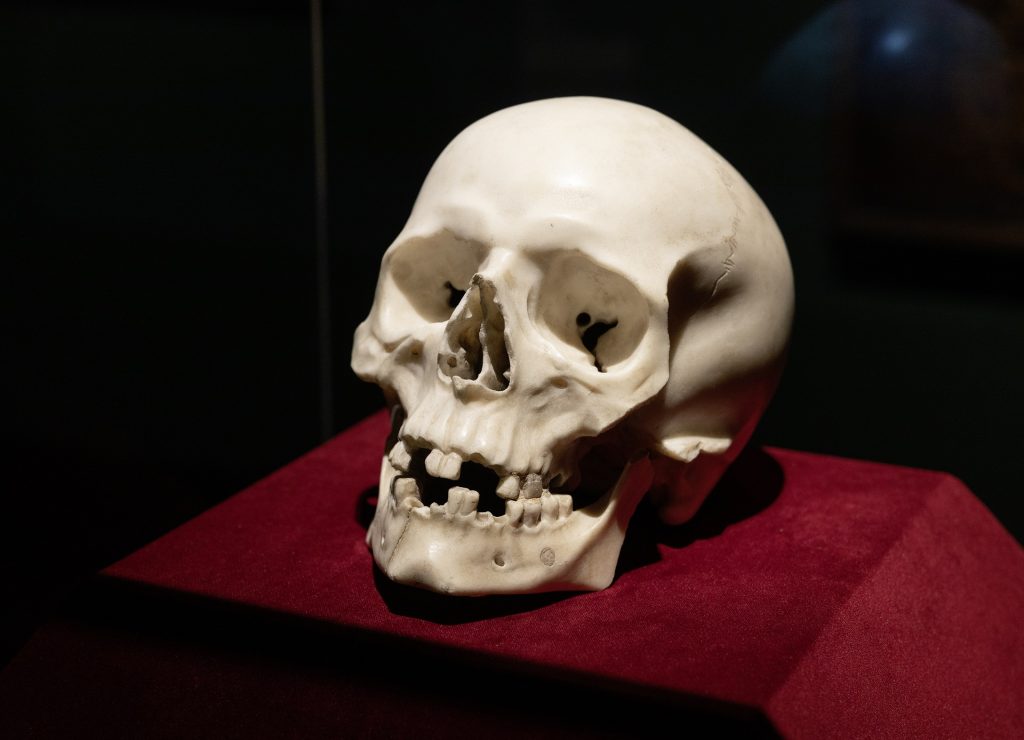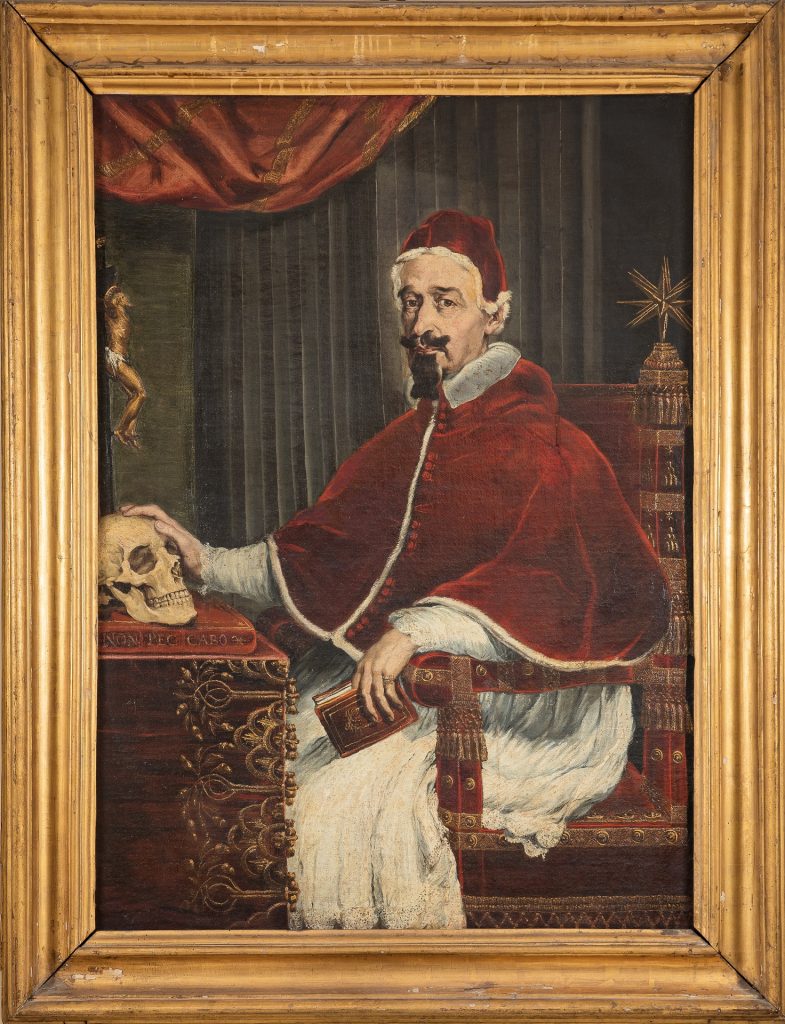On View
A Marble Skull Displayed for Centuries at a German Castle Turns Out to Be the Work of Bernini, Researchers Have Discovered
The skull, made for Pope Alexander VII, is included in the new Dresden show “Bernini, the Pope and Death."

The skull, made for Pope Alexander VII, is included in the new Dresden show “Bernini, the Pope and Death."

Taylor Dafoe

A life-sized marble skull that has for centuries sat in plain sight at a German castle turns out to actually be the work of artist Gian Lorenzo Bernini.
The skull, sculpted from white Carrara marble, was on display at Schloss Pillnitz, a palace south of Dresden until curator Claudia Kryza-Gersch had it sent to the State Art Collections of Dresden for restoration. There, she and other researchers puzzled over its origin.
“Everybody had the same reaction to it,” Kryza-Gersch told the Art Newspaper. “We were standing around a table, looking at it. The question of course was—who made it? And since it has Roman provenance, someone jokingly said ‘maybe it’s a Bernini?’”
In fact, further research revealed that the skull was indeed made by the Italian master for Pope Alexander VII in the mid-17th century. “Our jokes were proven right,” the curator said.

Gian Lorenzo Bernini, Skull (1655). © SKD. Photo: Oliver Killig.
The skull went on view under the artist’s name for the first time today in “Bernini, the Pope and Death,” an exhibition at the State Art Collections.
Kryza-Gersch and her team found that, just days after being appointed, in 1655, Alexander VII—who was born Fabio Chigi—commissioned Bernini to make both the marble skull and a lead sarcophagus. The objects, morbid reminders of death’s close presence, would live on the Pope’s desk and under his bed.
They soon proved prophetic: A year later, a plague hit Italy, killing hundreds of thousands of people across the country. Rome, however, was among the least impacted cities as Alexander VII ordered a series of effective restrictions that will surely sound familiar today: quarantines, masks, and lockdowns.

Guido Ubaldo Abbatini, Pope Alexander VII with Bernini’s skull (1655-56). © Art Collection of the Sovereign Order of Malta, Rome. Photo: Nicusor Floroaica.
Following Alexander VII’s death in 1667, the skull remained in the Chigi family’s collection until 1728, when it was purchased along with a trove of 164 other antique sculptures and four contemporary artworks, by Augustus the Strong. It was thereafter transferred to Dresden.
Also included in the the current Dresden exhibition is a 1655-56 portrait of Alexander VII, shown with his hand atop the skull, painted by Bernini’s pupil Guido Ubaldo Abbatini.
“Bernini, the Pope and Death” is on view at the State Art Collections of Dresden now through September 5, 2021.